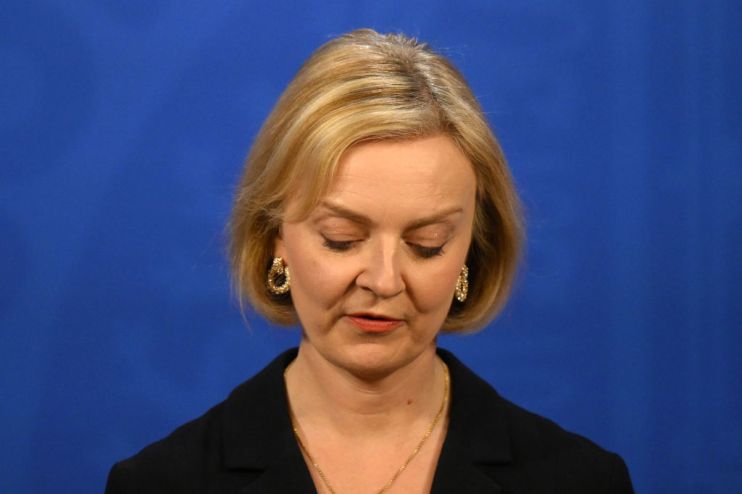Britannia, Unchained from reality will be the ideological legacy of Liz Truss

A month ago, just days into her premiership, I wrote that unless Liz Truss learnt to deliver a decent speech, she would be sunk. The prognosis was, it transpired, accurate. But my diagnosis was incomplete: her woeful speechmaking was just one of many political comorbidities.
Her primary ailment was ideology. Liz Truss is an ideologue, and like all idealogues she is blinded by her faith. No speechmaker, Truss-ism was most fully articulated in her mini-budget. Tax cuts for the very wealthiest, an end to the bankers’ bonus cap, and low corporation tax rates were to set free the spirit of enterprise.
Growth, she imagined, would fill the gaping hole in the public finances. Never elected, and still two years from having to face the ballot box, Truss thought she wouldn’t have to defend her ideas so soon. Bolstered by her faith, I am sure she was convinced that her policies would work.
She failed, however, to consider another means of voting. Benjamin Graham, one of history’s greatest investors, declared that: “in the short-term, the market is a voting machine.” The markets did indeed vote, with chaos in the gilt markets and a plummeting pound in the immediate aftermath of the mini-budget.
From that moment, everything was epilogue, including the departure first of a Chancellor and then of a Home Secretary. Her credibility as a manager of the country’s finances was irretrievably sunk. The damage was so considerable, so rapid and so of the government’s own making, that her party’s credibility is unlikely to be salvageable.
As she stood on the steps of Downing Street yesterday, the unavoidable came to pass. On just her 45th day in office, Liz Truss resigned. She now becomes comfortably the shortest serving Prime Minister in British history, knocking George Canning off his ignominious perch.
The speech she gave was fittingly brief. As prime ministers depart Downing Street, they trot out the achievements of their passing administration. David Cameron chose austerity, the National Citizens Service, gay marriage. Theresa May claimed to have brought austerity to a close. Boris Johnson laid claim to Brexit and the vaccine roll-out.
Truss, in comparison, had nothing to say. This was, however, her best speech. Always a faltering performer, and though far from fluent yesterday, she at least appeared comfortable. Her smile, usually intolerably forced, came a little more easily. It appeared most readily, alongside arched eyebrows, at each mention of the word “growth”.
That Truss should have improved at the last was fitting. Though in office for one more week, the prime minister is out of power. Out of power, it is so much easier to be an ideologue.
We tell ourselves stories about our past to make the present and future tolerable. In her speech yesterday, we saw the first indications of the story Liz Truss will tell herself. It will be a story of someone with a bold vision for growth, who wanted to build a Britannia Unchained, but whose opportunity to do so was stalled by an anti-growth coalition that opposed her.
In the cruel world of politics, Truss’ story is history. Attention turns now to the week-long contest to replace her. Boris Johnson is said to be taking soundings on whether to stand.
Reading his resignation speech that comes as little surprise. “Like Cincinnatus I am returning to my plough,” he told us. A good classicist, Johnson well knows that while Cincinnatus relinquished power, he soon returned to it.